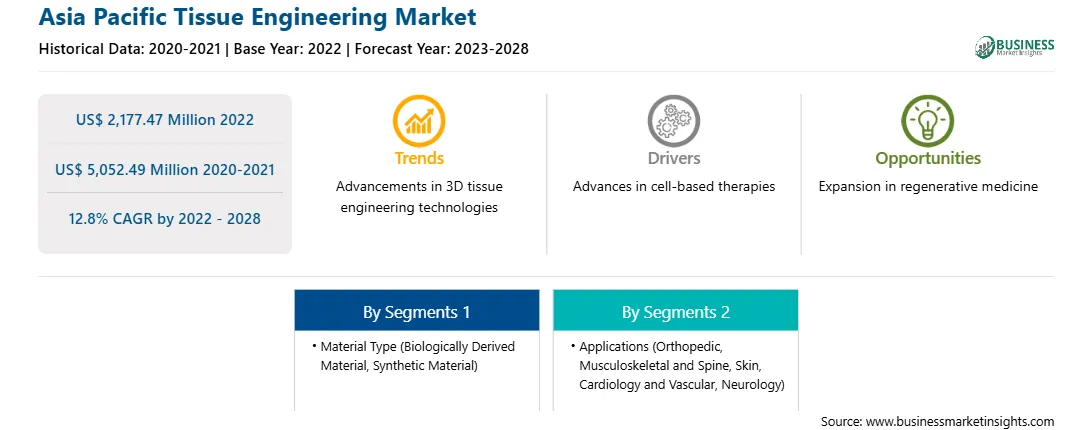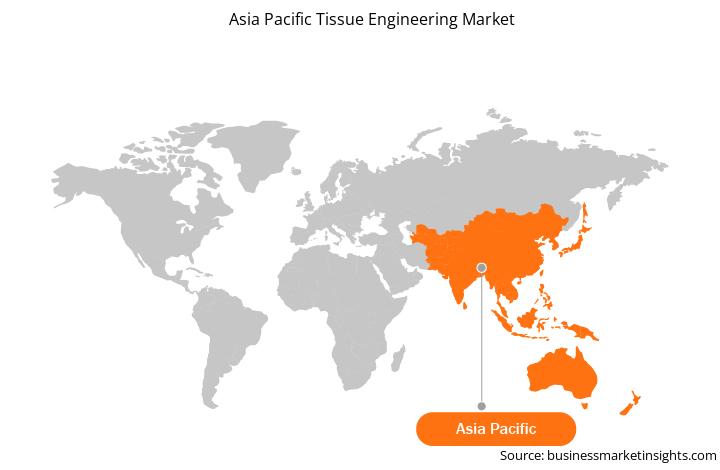Tissue engineering and regenerative medicine (TERM) have been proposed and developed for more than 30 years. Although several successful attempts at tissue regeneration have been made, TERM is still in its infancy. There are many unanswered fundamental questions regarding the selection of cell sources, development of tissue-specific materials, specialized bioreactors, and the construction of complex organs. After all, most therapies or treatments aim to enhance tissue regeneration, and stem cell engineering has opened a new avenue in regenerative medicine. Tissue engineering can be applied to construct various tissues, including blood vessels, nerve tissues, skin, and bones. Several techniques involving new materials, new structures, and novel surface modifications of biomaterials are developed for stem cell engineering. Also, a deep understanding of the interactions between cells and biomaterials is needed. Advances in tissue engineering research and its methodology led to the formation of scaffolds for bioprinters and then to the decellularized organs. More research into processes is overcoming the shortcomings of previous methods. Improving knowledge in the biology of regeneration, development in microelectronics, and 3D printing technology helps overcome the hurdles. In additing, cell therapy is one of the fastest-growing segments of the regenerative medicine domain. Novartis’s Kymriah was the first cell therapy solution offered for the treatment of B-cell acute leukemia, which opened opportunities for the emerging treatment therapy. Moreover, RepliCel, a regenerative medicine provider, has a wide range of regenerative medicine products in pipeline, with three products—RCH-01, RCS-01, and RCT-01—in the development phase. Further, Sernova is engaged in the development of regenerative medicine technologies and has a huge pipeline of the products for various conditions, including diabetes, Hemophilia A, and hyperthyroidism. Therefore, rapid advancements in the development of regenerative medicines to provide effective solutions for chronic conditions are driving the growth of the market.
With new features and technologies, vendors can attract new customers and expand their footprints in emerging markets. This factor is likely to drive the Asia Pacific tissue engineering market at a substantial CAGR during the forecast period.

Strategic insights for the Asia Pacific Tissue Engineering provides data-driven analysis of the industry landscape, including current trends, key players, and regional nuances. These insights offer actionable recommendations, enabling readers to differentiate themselves from competitors by identifying untapped segments or developing unique value propositions. Leveraging data analytics, these insights help industry players anticipate the market shifts, whether investors, manufacturers, or other stakeholders. A future-oriented perspective is essential, helping stakeholders anticipate market shifts and position themselves for long-term success in this dynamic region. Ultimately, effective strategic insights empower readers to make informed decisions that drive profitability and achieve their business objectives within the market.

| Report Attribute | Details |
|---|---|
| Market size in 2022 | US$ 2,177.47 Million |
| Market Size by 2028 | US$ 5,052.49 Million |
| Global CAGR (2022 - 2028) | 12.8% |
| Historical Data | 2020-2021 |
| Forecast period | 2023-2028 |
| Segments Covered |
By Material Type
|
| Regions and Countries Covered | Asia-Pacific
|
| Market leaders and key company profiles |
The geographic scope of the Asia Pacific Tissue Engineering refers to the specific areas in which a business operates and competes. Understanding local distinctions, such as diverse consumer preferences (e.g., demand for specific plug types or battery backup durations), varying economic conditions, and regulatory environments, is crucial for tailoring strategies to specific markets. Businesses can expand their reach by identifying underserved areas or adapting their offerings to meet local demands. A clear market focus allows for more effective resource allocation, targeted marketing campaigns, and better positioning against local competitors, ultimately driving growth in those targeted areas.

The Asia Pacific tissue engineering market is segmented on the basis of material type, application, and country. Based on material type, the market is segmented into biologically derived materials, synthetic materials, and others. In 2022, the biologically derived materials segment held the largest market share. However, the synthetic materials segment is expected to register the highest CAGR during the forecast period. Based on application, the market is segmented into orthopedic, musculoskeletal & spine, skin & integumentary, cardiology and vascular, neurology, cancer, gi & gynecology, urology, and others. In 2022, the orthopedic, musculoskeletal, & spine segment held the largest market share. However, the skin & integumentary segment is expected to register the highest CAGR in the market during the forecast period. Based on country, the Asia Pacific tissue engineering market is segmented into Japan, China, India, South Korea, Australia, and Rest of APAC. In 2022, Japan held the largest market share; and China is also expected to grow at the fastest CAGR during the forecast period.
Zimmer Biomet; B. Braun Melsungen AG; Stryker Corporation; AbbVie, Inc.; Integra LifeSciences Holdings Corporation; Organogenesis Inc.; Medtronic; Baxter International Inc.; Johnson and Johnson Services, Inc.; 3M; and Cook Biotech Inc. are among the leading companies in the Asia Pacific tissue engineering market.
The Asia Pacific Tissue Engineering Market is valued at US$ 2,177.47 Million in 2022, it is projected to reach US$ 5,052.49 Million by 2028.
As per our report Asia Pacific Tissue Engineering Market, the market size is valued at US$ 2,177.47 Million in 2022, projecting it to reach US$ 5,052.49 Million by 2028. This translates to a CAGR of approximately 12.8% during the forecast period.
The Asia Pacific Tissue Engineering Market report typically cover these key segments-
The historic period, base year, and forecast period can vary slightly depending on the specific market research report. However, for the Asia Pacific Tissue Engineering Market report:
The Asia Pacific Tissue Engineering Market is populated by several key players, each contributing to its growth and innovation. Some of the major players include:
The Asia Pacific Tissue Engineering Market report is valuable for diverse stakeholders, including:
Essentially, anyone involved in or considering involvement in the Asia Pacific Tissue Engineering Market value chain can benefit from the information contained in a comprehensive market report.